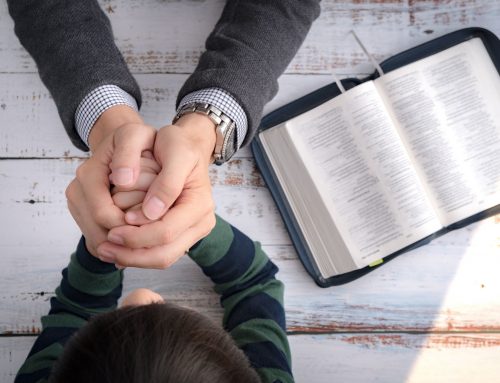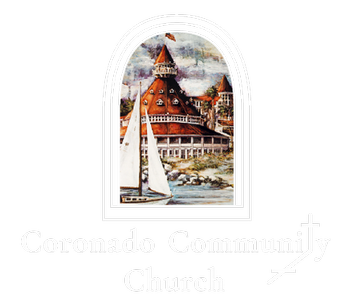Luke 18: 9-14
A Sermon by Pastor Eric Smith
Published On: October 23, 2022
A Sermon by Pastor Eric Smith
Published On: October 23, 2022
Some years ago I was in the midst of a novel when a character’s description got my attention.
I like it when a writer comes out with some insight that particularly speaks to me.
Well… I can’t remember anything else about the book save this one description… which I can’t quote… but I can give you the gist of it.
An as-yet-unknown character made an appearance about mid-way through the book.
The author described him as a well-dressed man, handsome enough. The type of person who when he met someone new, never failed to get it into the conversation that he was a Harvard graduate.
Now… the reason that the description stuck with me is that I saw myself in it. I didn’t go to Harvard, that wasn’t it. Ministry has taken me to many places and I have met many people.
During the polite chit-chat that goes on when you first establish connection with someone the topics often include what you do, your family, where you live… all of that sort of thing… I never failed to get in the conversation that I was from Coronado.
I might be the only person who has done this.
But I have noticed something interesting on Social Media.
I observe FaceBook friends who went to Coronado Schools sometime in their young lives… some were from Navy families and only lived here for a year or two. In Facebook there is a background information section where you share a bit of biographical information … One question is: where are you from? No matter where they were born, or how little time they lived here the answer would be Coronado.
After reading about the Harvard man I made a conscious effort to stop reciting my own pedigree… not because I value it any less… but because I realized that, no matter how subtly I introduced my island connection… I did it because I wanted the other person to know that this association made me, somehow, more worthy.
I’m just talking about me. Right?
In today’s passage from the Gospel of Luke Jesus has something to say about one’s sense of self in relation to others.
He told a parable to some people who felt pretty good about themselves, they thought they had it together, and they regarded some others with contempt.
Two people went into a church to pray. One, a life-long church member, the other… not.
The church member, in private, offered this prayer: God, I thank you that I am not like these tourists who smoke, eat processed food, wear ugly Hawaiian shirts, and never exercise, like that guy over there (meaning the somewhat derelict looking non-church member at the other side of the sanctuary). I attend church twice each week and I give to my church.
But the other man offered this prayer… God please forgive me…a sinner.
Jesus said, I tell you the second man went home connected with God – the first, did not.
Let’s call it hidden hubris.
Time for some definition…
Hubris is a characteristic of excessive confidence or arrogance, which leads a person to believe that they may do no wrong. The pride caused by hubris is a flaw in character. In ancient Greek mythology the downfalls of Achilles, Odysseus, and Icarus were all because of hubris.
Some of Jesus disciples had the problem, too. When Jesus shared the last supper they were having a discussion and…
A dispute also arose among them as to which one of them was to be regarded as the greatest. (Luke 22)
The presence of hubris is character defining… and an indication of how one relates to others. But it’s not always obvious… most often it’s hidden!
Think of Jesus’ illustration… he used a Pharisee who was praying. We know about Pharisees… they were righteous and regarded others with contempt. In today’s realm of faith, labeling someone a Pharisee is a slam against their character. But Jesus didn’t intend to slam the Pharisee just because he was a Pharisee – he came from a Pharisaic background himself. He used a garden variety, law abiding, prosperous and religious upstanding citizen, who was a Pharisee, in his story. He implied that this person’s hubris (whether hidden or not) was a problem that distanced him from deeper connection with God.
You may remember the movie, Guess Who’s Coming to Dinner?
It was released in December of 1967. The stars were Spencer Tracy, Katherine Hepburn, and Sidney Poitier. The film was the highest grossing money maker of Columbia Pictures to that time and it won two academy awards out of many nominations.
The story is about a young European-American woman who brings her fiancé home to San Francisco to meet her affluent parents. Her father is a respected newspaper publisher and her mother owns an art gallery. The young doctor is highly and internationally respected in the medical field, and he’s impeccably mannered, handsome, well dressed, and from a respectable California family.
Although the young man is an ideal choice to become the husband of their daughter… he is also African-American.
The European-American parents, free-thinking people – are put to the test – they have raised their daughter to be color-blind and to accept all people as equals – only they never imagined that their child would want to marry a person of another race. The film, which covers one busy day in the family home, is a series of conversations; some warm and intimate, others angry and challenging, all of them full of passion.
Dinner in the movie’s title is the focus event in the coming together of all of these characters – like a Jesus’ parable.
The hidden hubris of Spencer Tracy’s character is revealed.
It was the last movie that Spencer Tracy made before his death. He was so sick during the filming that they had to adjust the shooting schedule. His final monologue, at the end of the film, is one of the greatest speeches of film history; a speech about the passion and the power of love – his hidden hubris had been exposed … and overcome.
So what about you? Is there some aspect of the real you that makes you, in your own estimation, more worthy but is not readily apparent to anyone except … God?
What is your thinking about immigrants? Do you think of them as people with hopes and dreams, families and deep connections? Or are they a problem you wish would get solved?
What if your young adult son or daughter (or grandchild) was engaged to be married to a Muslim? That was the case for a woman in my La Mesa congregation. Althea was a solid, faithful, Christian person but she really had a problem when her son announced his engagement to marry a Muslim woman. We spent hours together as she poured out her heart, her concern, her love for her son, and her fear for the future. I tried to listen carefully and be helpful. The two young people got married. As far as I know, they still are, and I haven’t gotten any more phone calls.
What about your political opinion? What do feel and think about that other party?
Are they nice people but ill-informed?
Do you think them ignorant? Stupid?
Are they socialists? Are they fascists?
Naïve because they listen to the lies their party tells them?
Aren’t you glad you’re not one of them?
Let’s try ethnic heritage – are you close with people whose heritage is African? … Tongan? … Chinese? … Vietnamese? … Indian … Texan?
Are you close with the people who do your yard care, or who clear the tables in your favorite restaurants? Do you know any of their names?
The truth of our lives is that, by accident and design, we categorize people. They are our kind ….or not.
Most of our relationships are formed by dualism – either/or… black or white… good versus evil… The challenge and the struggle of maturity, of spirituality, of wisdom in life is to get beyond categorizing people.
I’m not just picking on you today… people with less resources can have just as much hidden hubris as people with more. Every ethnicity hosts the possibility of tribalism, in its worst expressions.Even Jesus had hidden hubris. Remember the story of the Canaanite woman who asked him to heal her daughter?
She said, Have mercy on me.
At first he wouldn’t respond to her at all. Finally he said to her “I was sent only to the lost sheep of the house of Israel.” “It is not fair to take the children’s food and throw it to the dogs.” … meaning her and her kind (Matthew 15)
Jesus was tribal, too – he categorized her. In that exchange he didn’t recognize her humanity. But he did, soon after, change his mind. It was a turning point in his life and for what would someday become Christian faith.
Back to our original story…
Jesus told this parable of a righteous Pharisee to a group of righteous Pharisees and said to them that what they valued had little value in the sight of God. People have value… the rest of it? No comparison.
Remove the appearances of living a good and faithful life and consider what is within. That good and faithful person prayed like this,
I’m so grateful for all that I have – and I’m so grateful that I’m not like him.
It’s the B part of that prayer that is trouble – whether or not you ever say the words.
I’m grateful I’m not like them. There it is… the judgement that another’s life is not as worthy as yours.
But here comes the twist in the plot… that tax collector had hidden hubris, too… like the Pharisee, he’s just a person. There was no love lost between those two groups. But the tax collector recognized it to be true of himself – and his prayer was … forgive me…
This is the Gospel. Good news. The Gospel takes our people categorizing… either/or … black-or-white … good-versus-evil values and scoffs at them.
Our world says your wealth matters,
your status matters,
your education matters,
your employment matters,
who your friends are matters,
and you are measured by your successes.
But the gospel says
your wealth does not matter,
your status does not matter,
your education does not matter,
your employment record does not matter,
your police record does not matter,
no matter how much you have failed or not succeeded by the standards of the world you live in –
you are valued by God.
Now make sure you hear this – We don’t live up to that standard and there’s really only one thing for us to say… forgive me God.
Open your heart because God loves you and as you receive and embrace that love you grow in faith, in hope, in love, in joy, and in peace.
That’s the gospel.
It’s God’s way – the best way you can live. It isn’t even difficult to do, but we have a hard time letting go of the rest of it.
The good news is that,
- regardless of your wealth,
- regardless of your power,
- regardless of your success…
- regardless of who your family or friends are…
- regardless whether you went to Harvard or are from Coronado
you count… you are worthy… you are a child of God.




